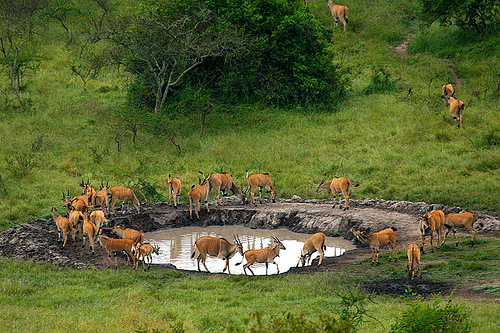Join US in Serving Humanity & Nature
Mentor a Child to protect the threatened National Parks and Wildlife Reserves for Next Generations
lake Mburo NATIONAL PARK
Park at a Glance
Size: 370km2
Altitude: 1,220m – 1,828m above sea level
Wetland habitats comprise 20% of the park’s surface
The parks’ precarious past has seen wildlife virtually eliminated several times: firstly in various attempts to rid the region of tsetse flies, then to make way for ranches, and finally as a result of subsistence poaching.
20% of the park’s entrance fee is used to fund local community projects such as building clinics and schools.
Lake Mburo National Park is a compact gem, located conveniently close to the highway that connects Kampala to the parks of western Uganda. It is the smallest of Uganda’s savannah national parks and underlain by ancient Precambrian metamorphic rocks which date back more than 500 million years. It is home to 350 bird species as well as zebra, impala, eland, buffalo, oribi, Defassa waterbuck, leopard, hippo, hyena, topi and reedbuck.
Together with 13 other lakes in the area, Lake Mburo forms part of a 50km-long wetland system linked by a swamp. Five of these lakes lie within the park’s borders. Once covered by open savanna, Lake Mburo National Park now contains much woodland as there are no elephants to tame the vegetation. In the western part of the park, the savanna is interspersed with rocky ridges and forested gorges while patches of papyrus swamp and narrow bands of lush riparian woodland line many lakes.

